Engagement Report 1H22
Proxy Voting
In 1H22 we participated in 227 meetings, where in 20% we cast at least one vote against management. We also voted for a Shareholder’s Resolution at the Standard Chartered AGM, which aimed to align the bank’s financing policy on fossil fuel with its stated commitment to achieve Net Zero by 2050.
In the coming year we expect more shareholders’ resolutions to be announced on transition plans, climate-related lobbying, board oversight and disclosure of climate risks. We at Polunin are committed to including climate action considerations in our proxy voting and holding board members accountable.
Engagement
Collective engagement: In preparation for the Workplace Disclosure Initiative (‘WDI’) engagement period starting in August 2022, we came up with a target list of companies covering mining, electricity generation and semiconductors.
Working with WDI has helped us understand that whilst policy commitment on a particular social issue is a good proxy on whether an issue is on a company’s radar, EM companies have a long way to go in disclosing process and outcomes. As companies often operate in regions with supply chain human rights risks, and diversity and pay gap issues are increasingly highlighted in the press, we will continue to raise awareness of the importance of social disclosures with investees.
In June 2022, we co-signed two AGM statements to Industrial and Commercial Bank of China (‘ICBC’) and Bank of China; a collective effort led by Asia Research and Engagement (‘ARE’). Both letters requested clearer financing policies on coal-fired power that are in line with China’s twin carbon targets, effectively phasing out unabated coal-fired power by 2045 to meet a carbon neutrality target by 2060, according to a study by the International Energy Agency (‘IEA’) undertaken with Chinese authorities.
Coal Exit: During 1H22 we have held meetings with PGE and Glencore.
Similar to our previous discussion with Tauron Polska, PGE indicated that the creation of a national energy agency in Poland (“NABE”, which will own all the lignite mines, hard coal and lignite-fired generation assets in Poland) is still under development and pending EU approval. Following the coal assets spin-off, PGE will focus on the transition of the remaining lignite-fired heating assets. We will continue to engage with our Polish utility holdings to monitor progress.
Our meeting with Glencore focused on their transparency in reporting carbon reduction, capex plans and a coal production profile that do not align with their Net Zero by 2050 target, and the underreporting of fugitive methane
emissions; highlighted by shareholder advocacy organisation Australasian Centre for Corporate Responsibility (‘ACCR’) and subsequently reported by Bloomberg. The lack of transparency paired with continuing coal mining expansion, in spite of stated climate commitments, were part of the reasoning behind our decision to divest.
Restricted entities: no new holdings on our restricted list as of 1H22.
